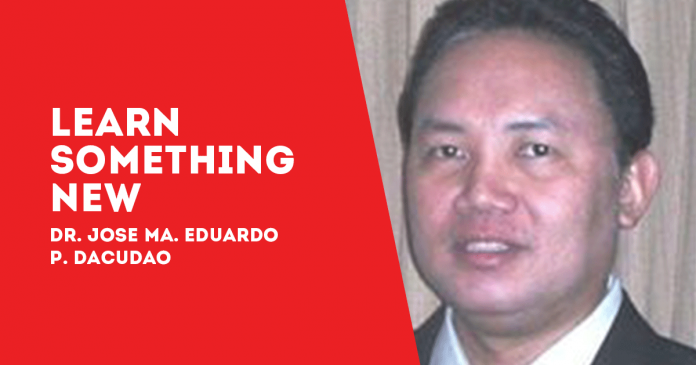
BY DR. JOSE PALU-AY DACUDAO
THERE are two modes or methods of thinking in Science:
1. Inductive reasoning: Making a general statement (a general hypothesis) from empirical facts.
Ex. Humans have hair. Dogs have hair. Rats have hair. All of these are mammals (animals with mammary glands or breasts). Therefore, all mammals have hair.
Ex: Humans have hair. Dogs have hair. Rats have hair. All of these are quadrupeds (animals with four limbs). Therefore, all quadrupeds have hair.
Ex: Cebuano-speaking people regard themselves as Visayans. Ilonggo-speaking people regard themselves as Visayans. Waray-speaking people regard themselves as Visayans. Their languages are closely related to each other and they live in southern Philippines. Therefore, there might be other peoples speaking related languages that live in southern Philippines that also call themselves Visayans.
2. Deductive reasoning: Making predictions (specific hypotheses) from general statements (general hypotheses).
Ex: All mammals have hair (at least during sometime in their development). Therefore, a horse (being a mammal) also has hair.
Ex: All quadrupeds have hair. Therefore, a crocodile (being a quadruped, which is an animal with four feet) also has hair.
Ex: Masbatenos speak a language related to Cebuano, Ilonggo, and Waray, and live in Southern Philippines. They might therefore also regard themselves as Visayans.
Hypothesis testing: One tests a hypothesis by seeking to REJECT or disprove it. Science is a peculiar thought-system and paradigm in that it is the only one that on principles inherent to its existence tries to disprove its own statements.
After careful investigation of more empirical facts or creating more empirical facts by experimentation, if a hypothesis still stands as valid, it is strengthened in the eyes of the scientific community such that it is now regarded as a theory.
But even the best theory is still fundamentally a hypothesis, and can fall with just one empirical fact that definitively disproves it. There is no absolute truth in Science.
That might trouble you, but you better live with that if you would like to be truly scientific. (To be continued)/PN



